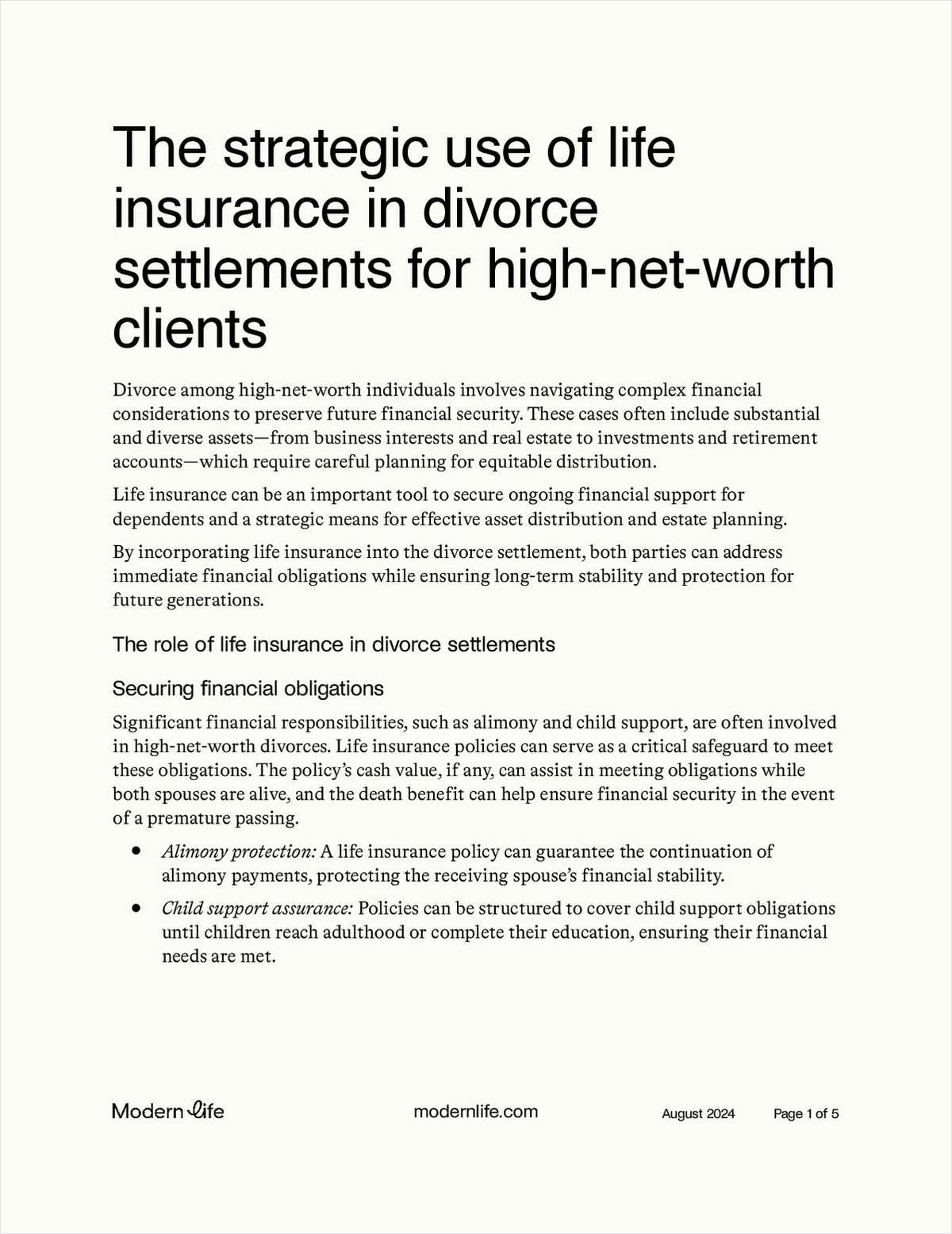 Allstate Corporation. Courtesy Photo.
Allstate Corporation. Courtesy Photo.Federal Judge Dismisses Cracking Foundation Suit Against Allstate
A federal judge has found that a Tolland couple could not prove that their Allstate policy must cover the decay of basement walls in their home. The issue of crumbling foundations has been widespread in many communities in Connecticut.
December 06, 2018 at 03:25 PM
5 minute read
In a blow to an estimated 35,000-plus Connecticut households facing crumbling foundations due to defective concrete, a federal judge has granted a motion to dismiss a suit brought by a Tolland family against Allstate, marking the 14th of 15 cases in which the insurer has prevailed.
Insurance companies have been increasingly hit with lawsuits in recent years since it came to light that homes in the northeastern area the state are facing potential collapse due to the presence of a naturally occurring iron sulfide originating from a quarry in Willington. The mineral—pyrrhotite—causes the gradual deterioration of concrete when exposed to water and oxygen.
In only one case—Maki v. Allstate—did U.S. District Judge Warren Eginton rule the plaintiff had alleged sufficient facts to avoid dismissal. That case is pending.
In the latest case in Tolland, one of the town at the epicenter of the problem, Richard and Denise Hyde maintained in federal court that Allstate should be held liable for concrete decay that affected their basement walls. The couple argued that, in several cases, Allstate's policy language was ambiguous and, therefore, the insurance company should have to pay for the damages.
But Connecticut U.S. District Judge Vanessa Bryant ruled Tuesday that the Hydes did not prove their case and granted Allstate's motion to dismiss. The family's lawsuit against Liberty Insurance Corp. moved forward.
The Hydes have lived on Willow Creek Drive in Tolland since 1998, a year after they purchased their property. In the fall of 2016, in anticipation of selling their home and suspecting decay, the Hydes hired an engineer to examine the home. The engineer reported the property had been constructed with defective concrete, marked by patterned cracking in the basement walls. The Hydes filed a claim with Allstate in May 2017, but was denied coverage in a letter four months later.
In denying the Hydes' claim that language in the policy is ambiguous, Bryant wrote: “A contract is unambiguous when its language is clear and conveys a definite and precise intent. … This court will not torture words to impart ambiguity where ordinary meaning leaves no room for ambiguity. The mere facts that the parties advance different interpretations of the language in question does not necessitate a conclusion that the language is ambiguous.”
Allstate maintained, and Bryant agreed, that the loss the Hydes claimed “is not covered by the plain language of the policies.” The insurance company argued that the restriction of coverage to “sudden and accidental” losses renders gradual concrete decay outside the policy's coverage. Allstate maintained the problem with the Hydes' basement walls was not sudden and accidental and did not constitute an entire collapse, something that would have been covered.
In addition, Allstate argued the Hydes' claimed loss falls into multiple policy exclusions, which Bryant agreed includes exclusions for loss related to cracking walls, rust and defective construction materials.
Bryant wrote that “the plain language of the policies dictates that is it the 'collapse' which 'must be sudden,' not any 'sudden events' that may eventually lead to the collapse.”
According to the Connecticut Department of Housing, the damage from the concrete is irreversible. The department's website indicates the most effective repair is to replace the existing foundation, with cost estimates ranging between $150,000 and $250,000 per home.
In a separate case decided Nov. 27, U.S. District Judge Michael Shea also relied on the unambiguous-language determination to dismiss a case against Nationwide Property & Casualty Insurance Co., brought by Union, Connecticut, residents Lawrence and Karen Cockill. Shea wrote that many exclusions in the Cockills' policy “are broad enough to include chemical reactions,” including “wear and tear,” “deterioration,” “inherent vice,” “latent defect,” “rust” and “cracking.”
Shea added that the Cockillls' policy “states that repairs to prevent further damage are covered 'if the peril causing the loss is covered.' ECF No. 15-2 at 16. In this case, because the “peril[s] causing the loss”—the alleged chemical reaction and cracking—are not covered, there is no additional coverage for replacing the concrete.”
Noting that thousands of families are facing the threat of crumbling foundations along with a mounting precedent of dismissed lawsuits, Gov. Dannel Malloy and state Attorney General George Jepsen announced in a joint release Thursday that state has entered into a memorandum of understanding with Hartford-based Travelers Companies to provide assistance to current and former Travelers policyholders who are seeking financial assistance to remediate crumbling foundations.
Under the agreement, Travelers will establish and administer the voluntary Travelers Benefit Program and commit $5 million to the program in concert with an assistance program launching through the Connecticut Foundations Solutions Indemnity Co.
A decision on whether to appeal the Hyde v. Allstate ruling to the U.S. Court of Appeals for the Second Circuit in New York City will be made by the Hydes' attorneys, Lindsay Britton and Jeffrey Lindequist, both of Springfield, Massachusetts-based Law Office of Michael D. Parker. Neither attorney responded to a request for comment Thursday.
Robinson & Cole attorneys Raymond Demeo and Jessica Hamilton, who represented Allstate, declined to comment. Allstate's media relations team for the Connecticut region did not respond to a request for comment.
This content has been archived. It is available through our partners, LexisNexis® and Bloomberg Law.
To view this content, please continue to their sites.
Not a Lexis Subscriber?
Subscribe Now
Not a Bloomberg Law Subscriber?
Subscribe Now
NOT FOR REPRINT
© 2024 ALM Global, LLC, All Rights Reserved. Request academic re-use from www.copyright.com. All other uses, submit a request to [email protected]. For more information visit Asset & Logo Licensing.
You Might Like
View All
Read the Document: 'Google Must Divest Chrome,' DOJ Says, Proposing Remedies in Search Monopoly Case
3 minute read
Apple Asks Judge to 'Follow the Majority Practice' in Dismissing Patent Dispute Over Night Vision Technology

'Don't Be Afraid to Dumb It Down': Top Fed Magistrate Judge Gives Tips on Explaining Complex Discovery Disputes

State High Court Adopts Modern Standard for Who Keeps $70K Engagement Ring After Breakup
Trending Stories
Who Got The Work
Michael G. Bongiorno, Andrew Scott Dulberg and Elizabeth E. Driscoll from Wilmer Cutler Pickering Hale and Dorr have stepped in to represent Symbotic Inc., an A.I.-enabled technology platform that focuses on increasing supply chain efficiency, and other defendants in a pending shareholder derivative lawsuit. The case, filed Oct. 2 in Massachusetts District Court by the Brown Law Firm on behalf of Stephen Austen, accuses certain officers and directors of misleading investors in regard to Symbotic's potential for margin growth by failing to disclose that the company was not equipped to timely deploy its systems or manage expenses through project delays. The case, assigned to U.S. District Judge Nathaniel M. Gorton, is 1:24-cv-12522, Austen v. Cohen et al.
Who Got The Work
Edmund Polubinski and Marie Killmond of Davis Polk & Wardwell have entered appearances for data platform software development company MongoDB and other defendants in a pending shareholder derivative lawsuit. The action, filed Oct. 7 in New York Southern District Court by the Brown Law Firm, accuses the company's directors and/or officers of falsely expressing confidence in the company’s restructuring of its sales incentive plan and downplaying the severity of decreases in its upfront commitments. The case is 1:24-cv-07594, Roy v. Ittycheria et al.
Who Got The Work
Amy O. Bruchs and Kurt F. Ellison of Michael Best & Friedrich have entered appearances for Epic Systems Corp. in a pending employment discrimination lawsuit. The suit was filed Sept. 7 in Wisconsin Western District Court by Levine Eisberner LLC and Siri & Glimstad on behalf of a project manager who claims that he was wrongfully terminated after applying for a religious exemption to the defendant's COVID-19 vaccine mandate. The case, assigned to U.S. Magistrate Judge Anita Marie Boor, is 3:24-cv-00630, Secker, Nathan v. Epic Systems Corporation.
Who Got The Work
David X. Sullivan, Thomas J. Finn and Gregory A. Hall from McCarter & English have entered appearances for Sunrun Installation Services in a pending civil rights lawsuit. The complaint was filed Sept. 4 in Connecticut District Court by attorney Robert M. Berke on behalf of former employee George Edward Steins, who was arrested and charged with employing an unregistered home improvement salesperson. The complaint alleges that had Sunrun informed the Connecticut Department of Consumer Protection that the plaintiff's employment had ended in 2017 and that he no longer held Sunrun's home improvement contractor license, he would not have been hit with charges, which were dismissed in May 2024. The case, assigned to U.S. District Judge Jeffrey A. Meyer, is 3:24-cv-01423, Steins v. Sunrun, Inc. et al.
Who Got The Work
Greenberg Traurig shareholder Joshua L. Raskin has entered an appearance for boohoo.com UK Ltd. in a pending patent infringement lawsuit. The suit, filed Sept. 3 in Texas Eastern District Court by Rozier Hardt McDonough on behalf of Alto Dynamics, asserts five patents related to an online shopping platform. The case, assigned to U.S. District Judge Rodney Gilstrap, is 2:24-cv-00719, Alto Dynamics, LLC v. boohoo.com UK Limited.
Featured Firms
Law Offices of Gary Martin Hays & Associates, P.C.
(470) 294-1674
Law Offices of Mark E. Salomone
(857) 444-6468
Smith & Hassler
(713) 739-1250










